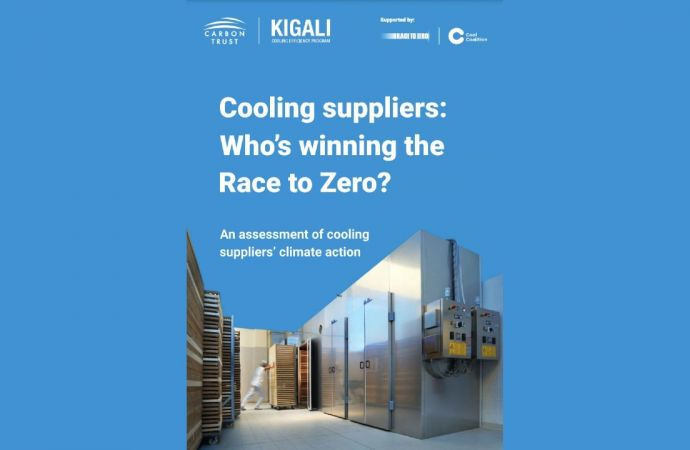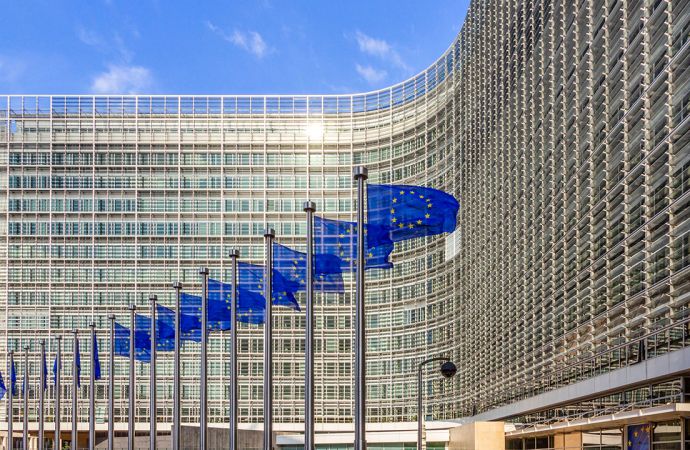In a joint position paper, leading industry associations representing the refrigeration and logistics business, are urging EU politicians to remove legal barriers to the use of natural refrigerants, and promote a leap from ozone-depleting HCFC refrigerants to hydrocarbons, ammonia, or CO2.

Natural refrigerants, including hydrocarbons, offer an ideal substitution solution to the upcoming phase out of HCFC in the EU, but still lack the necessary political support to realize their full potential. This is a key message from a joint position paper submitted by the European Cold Storage and Logistics Association (ECSLA) and eurammon to the European Commission in November. Representing a large majority of refrigerated storage facilities throughout the European Union and leading multinational companies in the refrigeration sector, both organisations advocate an early switch to natural refrigerants, which would be the most efficient way to counterbalance the current adverse effects from the use of HCFCs due to their high performance.
The current recast of the EU regulation No 2037/2000 to phase out ozone-depleting substances (ODS) would therefore be a unique opportunity for the region to both remove ODS from the market and leapfrog the use of high global warming hydrofluorocarbons (HFCs) which are meant to be the next replacement for ODS.
"If the European refrigeration industry has a role to play in the difficult equation of the fight against climate change, it goes without saying that a wider use of natural refrigerants is part of the solution", says Christiana Papazahariou, Secretary General of ESCLA.
Legal barriers impede widespread use of natural refrigerants
ECSLA and eurammon specifically ask the EU legislators to use the ODS regulation recast for a removal of regulatory obstacles at the EU level currently preventing some Member States from realising the full potential of natural refrigerants. As HCFCs will be prohibited in 2015, users would already now need to start planning for available alternatives. A clear vision by EU politicians favouring natural working fluids would encourage the EU business to reinforce their efforts and start investing in new installations. At the moment, a deficit of promotion, a lack of harmonization at the EU level and missing guidance for operators would impede a widespread use of hydrocarbons, ammonia and carbon dioxide.
In addition, sudden changes in the agreed timetable for a phase out HCFCs would send out the wrong signals to business operators who would likely resort to the easiest substitution solutions. These would be the family of HFCs, with very high global warming potential.
Background
In 2000, the European Commission (EC) issued Regulation 2037/2000 as its main instrument for implementing the Montreal Protocol. The regulation, stricter than the international treaty, sets out controls for the production, trade, use, and recovery of ODS. On 1 August 2008, the EC presented a proposal which recasts and amends the current legislation. Besides simplifying the law in force it sets out a schedule for the phase out of virgin and recycled HCFCs. Most importantly, it pledges to address future challenges – a point that is stressed by ECSLA and eurammon’s advocacy of long term sustainable refrigerant replacements.
The current recast of the EU regulation No 2037/2000 to phase out ozone-depleting substances (ODS) would therefore be a unique opportunity for the region to both remove ODS from the market and leapfrog the use of high global warming hydrofluorocarbons (HFCs) which are meant to be the next replacement for ODS.
"If the European refrigeration industry has a role to play in the difficult equation of the fight against climate change, it goes without saying that a wider use of natural refrigerants is part of the solution", says Christiana Papazahariou, Secretary General of ESCLA.
Legal barriers impede widespread use of natural refrigerants
ECSLA and eurammon specifically ask the EU legislators to use the ODS regulation recast for a removal of regulatory obstacles at the EU level currently preventing some Member States from realising the full potential of natural refrigerants. As HCFCs will be prohibited in 2015, users would already now need to start planning for available alternatives. A clear vision by EU politicians favouring natural working fluids would encourage the EU business to reinforce their efforts and start investing in new installations. At the moment, a deficit of promotion, a lack of harmonization at the EU level and missing guidance for operators would impede a widespread use of hydrocarbons, ammonia and carbon dioxide.
In addition, sudden changes in the agreed timetable for a phase out HCFCs would send out the wrong signals to business operators who would likely resort to the easiest substitution solutions. These would be the family of HFCs, with very high global warming potential.
Background
In 2000, the European Commission (EC) issued Regulation 2037/2000 as its main instrument for implementing the Montreal Protocol. The regulation, stricter than the international treaty, sets out controls for the production, trade, use, and recovery of ODS. On 1 August 2008, the EC presented a proposal which recasts and amends the current legislation. Besides simplifying the law in force it sets out a schedule for the phase out of virgin and recycled HCFCs. Most importantly, it pledges to address future challenges – a point that is stressed by ECSLA and eurammon’s advocacy of long term sustainable refrigerant replacements.
MORE INFORMATION
Related stories



